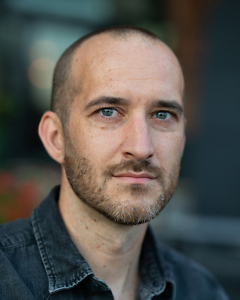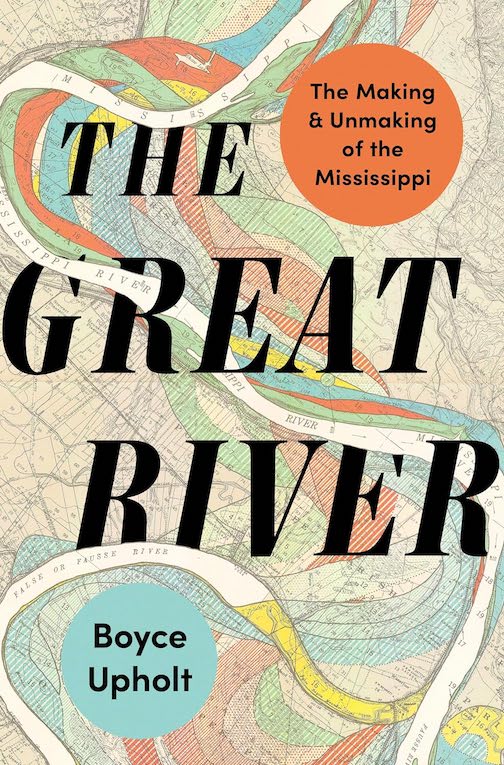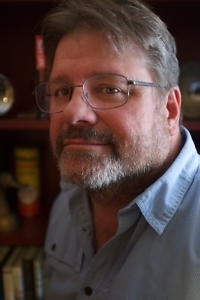The City Of Light and Love
Edmund White talks with Chapter 16 about his dishy, sexy new memoir of life in Paris
FROM THE CHAPTER 16 ARCHIVE: This interview originally appeared on February 5, 2014.
***
“I hate writing,” Edmund White told a newspaper last year, but he has nevertheless been turning out celebrated titles since the 1970s, writing novels and nonfiction to wide acclaim and drawing on his life as a gay man for all but a handful of them. In 1982, his semi-autobiographical novel, A Boy’s Own Story, was a monumental literary achievement and the first in a fictional series describing the stages of life for gay men. In 1983 White moved with his partner, John, to Paris, leaving New York amid the AIDS crisis. Though White learned two years after arriving in Paris that he too was HIV positive, for him the news was not a death sentence. Now 74, again living in New York and teaching at Princeton, White has written a glittering, delicious, tender, and funny memoir about his fifteen years in Paris, where his HIV status was rarely a foil for a rollicking good time—in the sack or anywhere else.
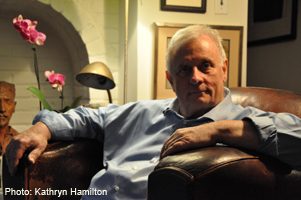 In Inside a Pearl: My Years in Paris, White, who won a National Book Critics Circle Award for his 1993 biography of French writer Jean Genet, describes the profound fear of AIDS during the early 1980s, when no one knew how the disease was spread. But the book is far from ghoulish, even in its frank acknowledgment of loss. White humorously describes how he won John—who, like many of White’s friends and lovers, eventually died of AIDS—despite competition from another literary suitor: “John was living in a mansion at the foot of Beacon Hill with a Spanish Prince, a Rockefeller, and two punk rock brothers.”
In Inside a Pearl: My Years in Paris, White, who won a National Book Critics Circle Award for his 1993 biography of French writer Jean Genet, describes the profound fear of AIDS during the early 1980s, when no one knew how the disease was spread. But the book is far from ghoulish, even in its frank acknowledgment of loss. White humorously describes how he won John—who, like many of White’s friends and lovers, eventually died of AIDS—despite competition from another literary suitor: “John was living in a mansion at the foot of Beacon Hill with a Spanish Prince, a Rockefeller, and two punk rock brothers.”
White recently answered questions via email in advance of his coming appearance at Vanderbilt University in Nashville on February 6:
Chapter 16: In Inside a Pearl you mention that France gave you a lot to write about—a blue-ribbon understatement. The book is so delightfully conversational, covering everything from French sexual mores to Catherine Deneuve and Yves Saint Laurent to the almost reflexive use of the French word correct. And then of course there are your sweet, sometimes hysterical, descriptions of a quixotic cast of lovers. Memoirs obviously require a different writing approach from novels or from portraits of Marcel Proust and Jean Genet. How did you first imagine Inside a Pearl? Did it emerge as you first envisioned it?
Edmund White: Thanks for your kind words. I wrote a lot of this book in the hospital after a severe stroke. I couldn’t talk or walk, but I could write—very shakily. I was in the hospital for a month, looking out at the Chrysler building and dreaming of Paris. I did try to keep my sense of humor, and I’m glad you found certain anecdotes funny. I wrote in a fairly stream-of-consciousness way, and my excellent editor, Anton Mueller, made me reorganize it extensively—which was a departure since I usually write slowly but in just one draft. In a memoir the reader will grant you ownership of your life, no matter how eccentric; in a novel the writer shouldn’t strain credulity overmuch.
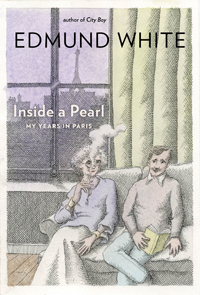 Chapter 16: You’ve said that you doubt your new book will be published in France because of the strict privacy laws in the republic of Francois Hollande. Though the differences are obvious and too numerous to list, are there some similarities between this book and A Moveable Feast, at least in their juicy literary gossip? (You did, after all, mention the well-endowed Czech who would towel dry his uncircumcised member at length in the locker room. No F. Scott Fitzgerald was he, though, I imagine?)
Chapter 16: You’ve said that you doubt your new book will be published in France because of the strict privacy laws in the republic of Francois Hollande. Though the differences are obvious and too numerous to list, are there some similarities between this book and A Moveable Feast, at least in their juicy literary gossip? (You did, after all, mention the well-endowed Czech who would towel dry his uncircumcised member at length in the locker room. No F. Scott Fitzgerald was he, though, I imagine?)
White: My regular editor has conveniently “retired,” so he doesn’t have to deal with this landmine of a book. An AA friend, who’s a famous editor, wrote how “hard” I am in my writing whereas I’m soft in real life. I don’t ever mean to be cruel, but I do take writing more seriously than social life. I think you owe the truth to a published account.
Chapter 16: Speaking of Francois Hollande, are you amused, disillusioned, unsurprised—what?—that the French president’s latest affair has become an international story?
White: In the eighties the privacy of public figures was rigorously protected by the French press—we never knew Mitterrand had a daughter, Mazarine, until after he died. Just the opposite of England’s gossipy yellow press. Now apparently publications are still fined for attaint de la vie privée, but the fines are just minimal.
Chapter 16: In this vein, did you ever have a scooter escort to meet a paramour of your own?
White: Luckily, no—I might have run off with the escort.
Chapter 16: Hilariously incorrigible, you write that you “lied to the editors of Vogue,” for whom you wrote a regular column, and told them you spoke perfect French. Has the world become too BuzzFed for anyone to get away with this sort of thing today?
White: I think I actually thought I could speak French until I was plunged into a real-life conversation. I’ve said that the easiest conversation is with one other person in love with you, and the most difficult is a fiction film, in which the actors mumble more than ordinary people do. The clearest speakers are upper-middle-class women of a certain age.
Chapter 16: Someone once remarked of you, “You’ll tell everyone about your sex life. Your only secrets are your ideas.” Will you tell us about your next book?
White: It’s a French subject, too. It’s a novel about a male French fashion model who moves to New York in the late 1970s just when models were becoming celebrities. My character, Guy, never ages and looks twenty-three when he’s already forty.
Chapter 16: Finally, sitting as I am just a stone’s throw from Pont Mirabeau in Paris, what I really want to ask is how many more croissants and baguettes I will have to buy from my neighborhood bakery before I am recognized as a regular? Do I have to sleep with someone? I’m thinking you would know.
White: If you go on an off-hour (eleven or three) and have a little conversation about the weather or your upcoming strange American custom of Thanksgiving, you might make an impression. I used to tip greengrocers a few euros for selecting the best fruits and vegetables—and they always remembered me! In France you should even tip the man who pumps your gas.
